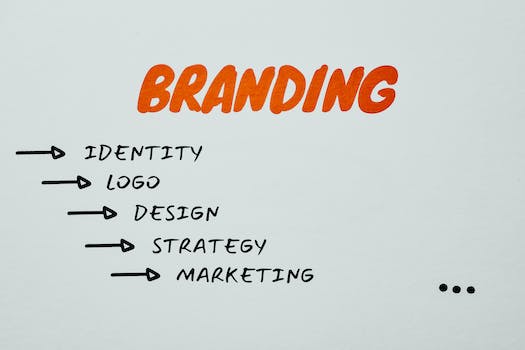What is artificial intelligence (AI)?
Artificial intelligence (AI) is the ability of a machine to simulate human intelligence. AI systems can learn from data, reason about the world, and make decisions autonomously. AI is used in a wide variety of applications, including:
* **Natural language processing (NLP)**: AI-powered NLP tools can understand and generate human language, making them useful for tasks such as customer service, marketing, and content creation.
* **Machine learning (ML)**: AI-powered ML algorithms can learn from data and improve their performance over time, making them useful for tasks such as predictive analytics, fraud detection, and personalized recommendations.
* **Computer vision (CV)**: AI-powered CV systems can identify and understand objects in images and videos, making them useful for tasks such as image classification, object detection, and facial recognition.
* **Robotics:** AI-powered robots can perform tasks that are dangerous or difficult for humans, making them useful for tasks such as manufacturing, healthcare, and search and rescue.
AI is a powerful technology that has the potential to revolutionize many industries. However, it is important to understand the limitations of AI and to use it responsibly.
What is artificial intelligence (AI)?
Artificial intelligence (AI) is the ability of a machine to simulate human intelligence. AI systems are able to learn, reason, and act autonomously. They are used in a variety of applications, including:
* Marketing automation
* Chatbots
* Machine learning
* Natural language processing
* Image recognition
* Speech recognition
AI is a powerful tool that can be used to improve the efficiency and effectiveness of small businesses. By automating tasks, providing real-time insights, and engaging with customers in a more personalized way, AI can help small businesses to grow and reach their goals.
How can AI benefit small businesses?
Artificial intelligence (AI) can benefit small businesses in a number of ways, including:
* **Automating tasks:** AI can be used to automate tasks that are currently performed by human employees, freeing up those employees to focus on more strategic tasks.
* **Personalizing customer experiences:** AI can be used to collect and analyze data about customers, which can then be used to create personalized marketing campaigns and customer service experiences.
* **Improving decision-making:** AI can be used to help businesses make better decisions by providing insights into data that would otherwise be difficult to analyze.
* **Scaling up operations:** AI can be used to help businesses scale up their operations more quickly and efficiently.
By using AI, small businesses can improve their efficiency, productivity, and customer service, which can lead to increased sales and profits.
Here are some specific examples of how AI is being used by small businesses today:
* **Marketing automation:** AI-powered marketing automation tools can help small businesses create and manage email campaigns, track customer engagement, and measure the results of their marketing campaigns.
* **Chatbots:** AI-powered chatbots can provide customer service support 24/7, answer questions about products and services, and help customers with their orders.
* **Machine learning:** AI-powered machine learning algorithms can be used to analyze data and identify patterns, which can then be used to make predictions about future events.
* **Virtual assistants:** AI-powered virtual assistants can help businesses with a variety of tasks, such as scheduling appointments, taking notes, and managing email.
These are just a few examples of how AI is being used by small businesses today. As AI continues to develop, we can expect to see even more innovative and creative ways for small businesses to use this technology to their advantage.
Specific AI applications for small businesses
There are many specific ways that AI can be used to benefit small businesses. Here are a few examples:
- **Marketing automation:** AI can be used to automate tasks such as email marketing, social media marketing, and lead generation. This can help small businesses save time and money, and it can also help them reach a wider audience.
- **Chatbots:** AI-powered chatbots can be used to provide customer service, answer questions, and sell products. This can help small businesses provide better customer service, and it can also help them increase sales.
- **Machine learning:** AI can be used to analyze data and identify trends. This information can be used to make better business decisions, such as which products to sell, how to price products, and how to target marketing campaigns.
- **Virtual assistants:** AI-powered virtual assistants can be used to help with tasks such as scheduling appointments, taking notes, and managing email. This can help small businesses free up their employees to focus on more important tasks.
These are just a few examples of how AI can be used to benefit small businesses. As AI continues to develop, we can expect to see even more innovative ways for small businesses to use this technology to their advantage.
Challenges of using AI for small businesses
There are a number of challenges associated with using AI for small businesses, including:
* **Cost:** AI can be a costly investment, especially for small businesses with limited budgets.
* **Complexity:** AI can be complex to implement and use, which can require specialized skills and knowledge.
* **Data requirements:** AI algorithms require large amounts of data to train, which can be difficult for small businesses to collect.
* **Bias:** AI algorithms can be biased, which can lead to unfair or inaccurate results.
* **Regulation:** AI is a new and emerging technology, which means that there is still a lack of regulation governing its use. This can make it difficult for small businesses to understand and comply with the rules and regulations that apply to AI.
Despite these challenges, AI can still be a valuable tool for small businesses. By carefully considering the challenges and risks involved, small businesses can use AI to improve their operations and achieve their business goals.
How can AI benefit small businesses?
Artificial intelligence (AI) can benefit small businesses in a number of ways, including:
* **Automating tasks:** AI can be used to automate tasks that are currently performed by human employees, freeing up those employees to focus on more strategic tasks.
* **Personalizing customer experiences:** AI can be used to collect and analyze data about customers, which can then be used to create more personalized and relevant marketing campaigns and customer service experiences.
* **Improving decision-making:** AI can be used to help businesses make better decisions by providing insights into data that would otherwise be difficult to analyze.
* **Driving innovation:** AI can be used to develop new products and services, or to improve existing products and services.
By using AI, small businesses can improve their efficiency, productivity, and customer satisfaction. This can lead to increased sales and profits, and a more sustainable competitive advantage.
How to get started with AI for your business
There are a few things you need to do in order to get started with AI for your business.
First, you need to decide what you want to use AI for. There are many different applications for AI in business, so you need to identify the one that will be most beneficial for your company.
Once you know what you want to use AI for, you need to find a suitable AI solution. There are many different AI solutions available on the market, so you need to do your research to find one that meets your needs.
Once you have chosen an AI solution, you need to implement it in your business. This may involve training the AI model, integrating it with your existing systems, and testing it to ensure that it is working properly.
Once the AI solution is implemented, you need to monitor its performance and make adjustments as needed. This is important in order to ensure that the AI solution is providing the desired results.
By following these steps, you can get started with AI for your business and reap the benefits of this powerful technology.
How to get started with AI for your business
There are a few things you can do to get started with AI for your small business.
1. **Do your research.** There are many different AI solutions available, so it’s important to do your research and find one that’s right for your business. Consider your specific needs and goals, and make sure that the solution you choose is compatible with your current systems and processes.
2. **Get buy-in from your team.** AI can be a powerful tool, but it’s important to make sure that your team is on board with using it. Explain to them the benefits of AI and how it can help your business, and answer any questions or concerns they may have.
3. **Start small.** Don’t try to implement AI across your entire business all at once. Start with a small pilot project, and then scale it up as you see results. This will help you to get familiar with AI and to identify any potential challenges.
4. **Get support.** There are many resources available to help you get started with AI, such as online tutorials, books, and consulting services. Don’t be afraid to reach out for help if you need it.
By following these steps, you can get started with AI and start reaping the benefits of this powerful technology.
Here are some specific tips for using AI effectively in your small business:
* **Use AI to automate tasks.** AI can be used to automate a variety of tasks, such as data entry, customer service, and marketing. This can free up your team to focus on more strategic tasks, and it can help you to improve your efficiency and productivity.
* **Use AI to personalize experiences.** AI can be used to collect data about your customers and to create personalized experiences for them. This can help you to build relationships with your customers and to increase their loyalty.
* **Use AI to make predictions.** AI can be used to make predictions about future events, such as customer churn, product demand, and sales. This information can help you to make better decisions and to improve your business performance.
By using AI effectively, you can gain a competitive advantage and grow your small business.
Tips for using AI effectively
Here are some tips for using AI effectively in your small business marketing:
- Start with a clear goal in mind. What do you want to achieve with AI? Are you looking to improve lead generation, increase sales, or reduce costs? Once you know your goal, you can start to identify the specific AI solutions that can help you achieve it.
- Do your research. There are many different AI solutions available on the market, so it’s important to do your research and choose the right one for your business. Consider the features and capabilities of each solution, as well as the cost and ease of use.
- Get buy-in from your team. AI can be a powerful tool, but it’s important to make sure that your team is on board with using it. Explain the benefits of AI and how it can help your business achieve its goals.
- Implement AI gradually. Don’t try to implement AI all at once. Start with a small pilot project and then scale up as you get more comfortable with the technology.
- Monitor and measure the results. Once you’ve implemented AI, it’s important to monitor and measure the results to see if it’s actually helping you achieve your goals. This will help you fine-tune your AI strategy and make sure that you’re getting the most out of the technology.
By following these tips, you can use AI effectively to improve your small business marketing.




